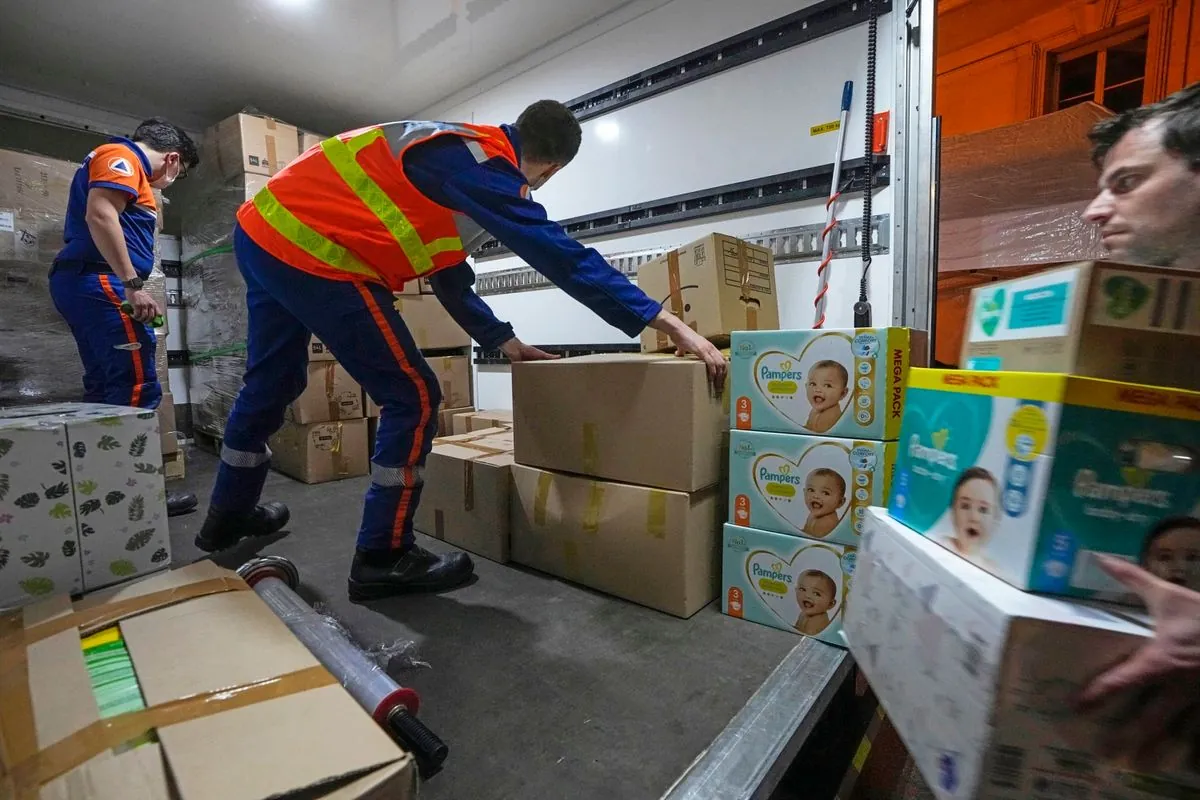Russian Prosecutors Seek 15-Year Sentence for U.S. Citizen Over $51 Donation
Russian prosecutors demand a 15-year sentence for Russian-American Ksenia Karelina, accused of treason for donating $51 to a Ukrainian charity. Her sentencing is scheduled for August 15, 2024.

In a case that has drawn international attention, Russian prosecutors have requested a 15-year prison sentence for Ksenia Karelina, a Russian-American woman accused of treason. The charge stems from a $51.80 donation she made to a Ukrainian charity in February 2022, coinciding with Russia's invasion of Ukraine.
Karelina, a Los Angeles spa employee, has entered a guilty plea in her trial in Yekaterinburg, Russia's fourth-largest city. The court has scheduled her sentencing for August 15, 2024. Her lawyer, Mikhail Mushailov, expressed hope for her inclusion in a future prisoner exchange, noting that such an exchange would only be possible after the court verdict takes effect.
Born in Russia, Karelina emigrated to the United States in 2012 and became a U.S. citizen in 2021. The naturalization process typically takes 3-5 years after obtaining permanent residency. She was arrested by the FSB, Russia's principal security agency, after traveling to Yekaterinburg to visit family in early 2024.
The treason charge, which can carry a maximum sentence of 20 years in Russia, was brought after investigators discovered Karelina's donation to Razom, a charity supporting Ukraine. The FSB alleged that the Ukrainian army was the ultimate beneficiary. Razom, meaning "together" in Ukrainian, has stated it was "appalled" by Karelina's arrest.

Razom's website outlines its support for various humanitarian projects, including providing first aid kits, generators, and vehicles to frontline Ukrainian medics. The charity also assists Ukrainian children and vulnerable communities affected by the conflict with food, shelter, and psychological support.
Mushailov argued that the prosecutors' request for a 15-year sentence in a penal colony was excessive, given Karelina's cooperation with the investigation. He explained that she pleaded guilty in hopes of receiving a reduced sentence and because "it was stupid in this situation to deny the obvious."
This case highlights the complex relationship between Russia and the United States, particularly in matters of citizenship and international law. It's worth noting that dual citizenship is recognized in both countries, and the U.S. Embassy in Moscow provides consular services to American citizens in Russia. However, the absence of an extradition treaty between the two nations complicates legal matters.
Karelina's case follows a recent prisoner swap between Russia and the West, which involved 24 prisoners from seven countries. Among those released were American journalists Evan Gershkovich and Alsu Kurmasheva, as well as former Marine Paul Whelan.
Other Americans currently held in Russia include Gordon Black, a soldier sentenced to three years and nine months in June 2024 for assaulting his Russian girlfriend, and Marc Fogel, a former teacher serving a 14-year sentence for marijuana possession.
As Karelina's case unfolds, it serves as a reminder of the potential risks faced by dual citizens and the complexities of international relations in times of conflict.
"We are appalled by Ksenia Karelina's arrest. Our organization supports a range of humanitarian projects, including the supply of first aid kits, wood stoves, generators, radios and vehicles to frontline Ukrainian medics. We also help Ukrainian children and vulnerable communities affected by the war, providing food, shelter, psychological support and clean water."


































